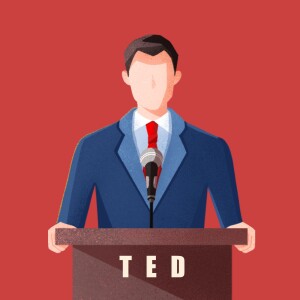Centro de libros de autoayuda
¡Hola a todos y bienvenidos al podcast! Aquí, donde la sabiduría se condensa en dosis concentradas, nos sumergimos en el fascinante mundo de los resúmenes de no ficción. Cada semana, exploramos los temas más relevantes e intrigantes del mundo actual, desde ciencia y tecnología hasta negocios y filosofía. ¿Te falta tiempo para leer esos largos libros que llevan meses en tu lista de pendientes? ¡No te preocupes! Nuestro equipo de expertos hace el trabajo por ti, destilando las ideas clave y enseñanzas cruciales en resúmenes breves y accesibles. Acompáñanos en este viaje de conocimiento, inspiración y crecimiento personal mientras desentrañamos juntos la esencia de lo mejor de la no ficción. ¡Empecemos! Website: https://bookeygetbooks.wixsite.com/bookeyes
Episodes

Friday Dec 22, 2023
Friday Dec 22, 2023
Quotes of The Four Agreements book
"Be impeccable with your word. Speak with integrity. Say only what you mean. Avoid using the word to speak against yourself or to gossip about others."
"Don't take anything personally. Nothing others do is because of you. What others say and do is a projection of their own reality, their own dream."
"Don't make assumptions. Find the courage to ask questions and to express what you really want. Communicate with others as clearly as you can to avoid misunderstandings, sadness, and drama."
"Always do your best. Your best is going to change from moment to moment; it will be different when you are healthy as opposed to sick. Under any circumstance, simply do your best, and you will avoid self-judgment, self-abuse, and regret."
"Let go of the need for approval. Accept yourself just the way you are. Your opinion of yourself is the only one that truly matters."
"Don't limit yourself. Be authentic. Free yourself from self-imposed limitations and societal expectations. Express yourself fully and live in alignment with your true nature."
"Be skeptical, but learn to listen. Don't believe everything you hear or think. Use discernment to assess the truth. Listen carefully to others, but ultimately trust your own inner wisdom."
"Stay in the present moment. Don't dwell on the past or worry excessively about the future. Live fully in the here and now, for that is where true peace, happiness, and fulfillment can be found."
"Be resilient in the face of challenges. Learn to bounce back from difficulties and setbacks. Embrace the lessons they offer and use them as opportunities for growth and transformation."
"Practice gratitude and appreciation. Focus on the positive aspects of your life and express gratitude for them. By cultivating an attitude of gratitude, you invite more blessings into your life."
What can we learn from The Four Agreements book?
Be impeccable with your word: The first agreement emphasizes the importance of integrity in our speech. It encourages us to use our words to spread positivity, love, and truth. It reminds us of the power of our words and their ability to build or destroy relationships.
Don't take anything personally: The second agreement teaches us not to internalize what others say or do. It helps us understand that people's reactions are often a reflection of their own beliefs, perceptions, and experiences. By not taking things personally, we can avoid unnecessary suffering and maintain emotional well-being.
Don't make assumptions: The third agreement highlights the dangers of making assumptions about others' intentions, feelings, or actions. It advises us to ask questions and communicate clearly to avoid misunderstandings. By doing so, we can prevent unnecessary conflicts and foster healthier relationships.
Always do your best: The fourth agreement encourages us to give our best effort in everything we do, regardless of the circumstances. It emphasizes that our best might vary depending on the situation, and it's important to be kind and understanding toward ourselves. By doing our best, we can cultivate self-esteem, growth, and personal mastery.
Overall, "The Four Agreements" offers valuable insights into how we can improve our relationships, liberate ourselves from self-limiting beliefs, and find inner peace and fulfillment. It reminds us that we have the power to transform our lives by adopting these agreements as guiding principles.
The Four Agreements book summary
"The Four Agreements" is a self-help book written by Don Miguel Ruiz, a Mexican author and spiritual teacher. The book presents four principles or agreements that can guide individuals towards personal freedom and happiness.
The first agreement is "Be impeccable with your word." Ruiz emphasizes the power of words and encourages readers to use their words for good, avoiding gossip, lies, and self-judgment. He explains that words have the ability to create reality, both positive and negative, so it is important to speak with integrity and avoid using words to harm others or oneself.
The second agreement is "Don't take anything personally." Ruiz teaches that everyone perceives the world through their own lens, and therefore the negative actions or opinions of others are not a reflection of one's self-worth. Taking things personally only leads to suffering, so he suggests not to internalize criticisms or negative remarks from others.
The third agreement is "Don't make assumptions." Ruiz emphasizes the importance of seeking clarity and understanding by asking questions instead of making assumptions about others' intentions, beliefs, or actions. By avoiding assumptions, individuals can prevent misunderstandings, conflicts, and unnecessary suffering.
The fourth agreement is "Always do your best." Ruiz promotes the idea that one's best effort will vary from moment to moment, depending on circumstances and personal capabilities. Rather than striving for perfection, he encourages readers to simply give their best, whatever that may be, based on their current circumstances.
Ruiz argues that by following these four agreements, individuals can break free from self-limiting beliefs, inner judgments, and negative patterns of behavior. The book aims to inspire readers to live an authentic and fulfilling life by embracing the power of their words, letting go of personal attachments, seeking clarity, and doing their best in all aspects of life.

Thursday Dec 21, 2023
Thursday Dec 21, 2023
Homo Deus book summary
"Homo Deus: A Brief History of Tomorrow" is a book written by Yuval Noah Harari, published in 2015. The book explores the possible future of humanity, focusing on the concepts of human progress, evolution, and technological advancements.
Harari argues that human progress has primarily focused on overcoming basic hardships such as hunger, disease, and war. However, with the advent of new technologies, such as artificial intelligence and genetic engineering, humans are now able to overcome these hurdles and push the boundaries of what it means to be human. He delves into the idea that instead of becoming Homo sapiens (wise humans), we are on the verge of transforming into a new species called Homo deus (god-like humans).
The book is divided into three main sections. The first section discusses the progress of Homo sapiens and how our biological and social evolution has shaped our history. It explores various factors that have led to human dominance, such as the ability to create societies and belief systems.
The second section delves into the current technological advancements and their potential consequences. Harari examines the rise of artificial intelligence, bioengineering, and other emerging technologies. He raises questions about the impact of these advancements on the future job market, economic systems, and human happiness.
In the final section, Harari speculates about the future of humanity as Homo deus. He explores possible scenarios, such as a world where human desires and emotions are manipulated by algorithms, where consciousness can be uploaded into computers, or where biological limitations can be overcome through genetic engineering.
Harari challenges readers to consider the ethical and philosophical implications of these developments. He argues that as we become more god-like, we may also lose touch with our humanity and the value of human life.
Overall, "Homo Deus" provides a thought-provoking analysis of the potential future of humanity and the impact of technological advancements. It highlights the need for us to carefully navigate the challenges and opportunities that arise as we move towards a new era of human evolution.
Quotes of Homo Deus book
"Humans increasingly see themselves as gods, possessing the power to shape and control their own destinies."
"The rise of technology has given humans unprecedented levels of knowledge and control, allowing them to conquer disease, famine, and even death itself."
"With the merging of biology and technology, humans are not only becoming gods but also creating new forms of life that blur the line between human and machine."
"In this new world, data is the new god, and those who control the flow of data have the power to shape and manipulate society."
"The concept of 'free will' is being called into question as algorithms and artificial intelligence increasingly make decisions on behalf of humans."
"The pursuit of happiness and the search for meaning has shifted from religion to science, as humans strive to enhance their own well-being and extend their lives."
"However, this newfound power and dominance also comes with great responsibility, as humans must grapple with the ethical implications of their actions and choices."
"Ultimately, Homo Deus explores the notion that humans may be on the path to becoming obsolete, as advancements in technology and artificial intelligence threaten to surpass human capabilities."
"The future of humanity lies in merging with technology, transcending our mortal limitations, and becoming something more than human."
"In this brave new world, what it means to be human is being redefined, and the choices we make today will determine the course of our evolution."
What can we learn from Homo Deus?
The future of humanity: The book explores the potential future trajectory of humanity, suggesting that Homo sapiens may soon be surpassed by a new species, Homo Deus. It provides insights into the possible paths humanity may take, such as technological advancements, the merging of humans with technology, and the potential consequences of such developments.
The role of data and technology: Homo Deus emphasizes the increasing importance of data and technology in shaping our lives. It highlights the potential benefits and risks associated with the collection, analysis, and utilization of vast amounts of data in areas such as healthcare, governance, and personal decision-making. The book prompts us to critically think about how we navigate this new era of data-driven society.
The distinction between intelligence and consciousness: The book delves into the distinction between intelligence, the ability to process information, and consciousness, the awareness and experience of being. It explores how advancements in artificial intelligence and algorithms can enhance our intelligence but raises questions about the potential loss of human consciousness or subjective experience in the process.
Potential risks and ethical considerations: Homo Deus prompts us to consider the potential risks and ethical dilemmas associated with the future outlined by Harari. It explores issues such as surveillance, inequality, algorithmic decision-making, and the concentration of power in the hands of a few corporations or individuals. It encourages us to critically evaluate the impact of technological developments on various aspects of our lives.
The need for a new moral framework: The book argues that as humanity moves towards a post-human future, we need to reconsider and redefine our moral framework and values. It challenges traditional notions of humanism and suggests the importance of incorporating new principles and ethical guidelines to navigate the complex challenges ahead.
Overall, Homo Deus provides a thought-provoking exploration of our potential future as a species, urging us to critically examine the impact of technology, data, and the choices we make as individuals and societies.

Wednesday Dec 20, 2023
Wednesday Dec 20, 2023
What are five 5 signs that children are being neglected?
Physical signs: Neglected children may appear dirty, unkempt, or undernourished. They may have consistently poor hygiene, such as dirty clothes or body odor, without appropriate intervention from their caregivers.
Emotional signs: Neglected children may display a lack of emotional attachment or bonding with their caregivers. They might seem emotionally detached, withdrawn, or overly aggressive. They may also exhibit low self-esteem, depression, or anxiety.
Developmental signs: Neglected children may experience developmental delays or regressions. These can be observed in their speech and language skills, motor skills, social skills, or academic performance. They might struggle to reach typical milestones for their age.
Behavioral signs: Neglected children may exhibit unusual or concerning behaviors. They might frequently engage in unsupervised and risky activities or demonstrate acts of self-harm. They may show a lack of impulse control, disobedience, or engage in delinquent behaviors.
Social signs: Neglected children may have limited social interactions or a lack of appropriate social skills. They might struggle to form nurturing relationships with peers or have difficulty trusting others. They may also exhibit attention-seeking behaviors or attempt to seek attention in negative ways.
Running On Empty book summary
"Running On Empty" by Jonice Webb is a self-help book that explores the concept of Emotional Neglect and its impact on individuals' lives. The author, a licensed psychologist, argues that one of the most widespread yet overlooked forms of childhood trauma is not necessarily what happened to a person, but rather what did not happen – the emotional nurturing they did not receive from their parents or caregivers.
The book begins by explaining the core concept of Emotional Neglect, which is when parents fail to respond adequately and consistently to their children's emotional needs. Webb suggests that when this emotional nurturing is lacking, it can have profound and long-lasting effects on individuals' emotional well-being, including feelings of emptiness, numbness, and disconnection. She offers case studies and anecdotes to illustrate how Emotional Neglect can manifest in different ways in people's lives.
Through the book, Webb guides readers in identifying whether they have experienced Emotional Neglect and how it may be affecting them. She provides a checklist of common signs and symptoms and encourages readers to reflect on their own experiences and emotions. The author also discusses how Emotional Neglect can impact various aspects of life, such as relationships, self-esteem, and overall happiness.
In addition to helping readers understand the effects of Emotional Neglect, Webb offers strategies and exercises to overcome its impact. She provides guidance on how to reconnect with one's emotions, learn healthy ways of self-care, and develop better emotional connections with others. The book emphasizes the importance of self-compassion, self-acceptance, and self-awareness in the healing process.
Throughout "Running On Empty," Webb combines research findings with her clinical experience to create a practical and accessible guide for individuals who may have experienced Emotional Neglect. The book aims to help readers understand their emotions better, heal from past neglect, and ultimately create a more fulfilling and connected life.
Overall, "Running On Empty" is a compassionate and informative book that sheds light on a commonly overlooked form of childhood trauma. It offers validation and support to those who have experienced Emotional Neglect and provides practical tools for healing and personal growth.
Quotes of Running On Empty book
"Running on empty: the perfect way to describe the feeling of constantly giving and never replenishing." - Jon Foreman
"We are all just running on empty, trying to find something to fill the voids within us." - Unknown
"Running on empty is a way of life for those who are constantly chasing after validation and approval." - Brene Brown
"Running on empty means sacrificing our own needs and desires for the sake of others, until we have nothing left to give." - Unknown
"Running on empty is not sustainable, we must learn to prioritize self-care and self-love." - Unknown
"Running on empty is a wake-up call to slow down, take a breather, and refill our cups." - Unknown
"Running on empty leads to burnout, we must learn to listen to our bodies and take breaks when needed." - Unknown
"Running on empty may seem like strength, but it's actually a sign of neglecting our own well-being." - Unknown
"Running on empty is a reminder that we need to find balance and prioritize our own needs in order to truly thrive." - Unknown
"Running on empty is a state of mind that can only be changed by taking the time to refill our own cups." - Unknown

Tuesday Dec 19, 2023
Tuesday Dec 19, 2023
Why is Homo Deus book worth reading?
Provocative Perspective: Homo Deus offers a unique and thought-provoking perspective on the future of humanity and the potential transformation of humans into god-like beings. It pushes the boundaries of traditional thinking and invites readers to ponder on the possibilities and challenges that lie ahead.
Well-Researched Analysis: The book is extensively researched, drawing on a wide range of fields including history, philosophy, science, and technology. It provides a comprehensive understanding of human evolution, the rise of artificial intelligence, and the possible implications for our future.
Engaging Writing Style: Yuval Noah Harari, the author of Homo Deus, has a captivating writing style that makes complex concepts accessible and engaging. He presents his ideas in a clear and concise manner, weaving together stories and examples to support his arguments.
Societal Relevance: The issues discussed in the book are highly relevant in today's rapidly changing world. It explores the challenges of navigating a future dominated by technology, data, and algorithms, making it a vital read for anyone interested in understanding the direction in which society is heading.
Intellectual Stimulation: Homo Deus pushes readers to question their assumptions and beliefs about the nature of humanity and the purpose of our existence. It encourages critical thinking and fosters intellectual curiosity, providing a rich foundation for further discussions and debates.
Futuristic Vision: By exploring potential future scenarios, Homo Deus encourages readers to imagine alternative futures and reflect on the choices we make today. It sparks conversations about the ethical, social, and political implications of technological advancements and the potential impact on human lives.
Overall, Homo Deus is worth reading because it challenges conventional wisdom, offers a well-researched analysis, engages readers with its writing style, remains relevant to our times, stimulates intellectual curiosity, and encourages envisioning the future.
The author of Homo Deus book
The author of the book Homo Deus: A Brief History of Tomorrow is Yuval Noah Harari. He is an Israeli historian and professor at the Hebrew University of Jerusalem. Harari is known for his books Sapiens: A Brief History of Humankind and 21 Lessons for the 21st Century, in addition to Homo Deus. He has a background in history, philosophy, and military services. Harari explores in his books the past, present, and future of humanity, examining the impact of technological advancements on society, the potential for human enhancement, and the direction our species may be heading in. Homo Deus specifically delves into the prospects of transhumanism and the potential evolution of human beings into superhumans or post-humans. The book raises important questions about the role of technology in shaping our future and how it might influence our values, beliefs, and existence.
What is the book Homo Deus about?
Homo Deus: A Brief History of Tomorrow is a non-fiction book written by Israeli author Yuval Noah Harari. Published in 2015, the book explores various possible future developments in the fields of science, technology, and society. It builds upon the author's previous work, Sapiens: A Brief History of Humankind, which examined the history and evolution of the human species.
In Homo Deus, Harari examines what he sees as the future direction of humanity, exploring potential advancements in fields such as artificial intelligence, genetic engineering, and biotechnology. He argues that as humans continue to gain more control over their own biology and environment, they will strive for achieving godlike abilities such as immortality, happiness, and divinity. Harari also discusses potential ethical and social implications that may arise from these advancements.
The book delves into themes such as the future of work and the potential obsolescence of humans in certain industries due to automation, the impact of technology on decision-making and human agency, possible scenarios for the redistribution of power in a highly digitalized world, and the challenges of maintaining and enhancing individual and collective well-being amidst advancing technologies.
Homo Deus offers a thought-provoking and speculative glimpse into humanity's potential future, raising questions about the meaning of life, the nature of consciousness, and the importance of traditional human values in a rapidly changing world.

Monday Dec 18, 2023
Monday Dec 18, 2023
Why is it called Running On Empty?
"Running On Empty" is the title of a 1977 song by Jackson Browne, which later became the title of his 1977 album. The phrase "running on empty" is a metaphor that describes someone or something that is drained of energy, motivation, or resources.
In the context of the song and album, "running on empty" refers to a sense of emptiness and weariness, often a result of a busy or demanding lifestyle or personal struggles. The song reflects on the transient nature of life and the toll it takes on individuals who are constantly moving, trying to keep up with the fast pace, and struggling to find purpose and fulfillment.
The phrase "running on empty" resonated with many people as it captured the exhaustion and burnout that can occur in modern society. It became a metaphor used to describe various situations such as emotional exhaustion, physical fatigue, or a lack of inspiration. The phrase has since been used in different contexts, including books, movies, and discussions about personal well-being and societal issues.
How to overcome and end emotional neglect?
Recognize and acknowledge your emotions: Start by acknowledging and accepting that you have experienced emotional neglect. Understand that your emotions and needs matter, and it is important to address them.
Seek support: Reach out to trusted friends, family members, or a therapist who can provide a safe space for you to express your emotions. Having someone who can validate your experiences and provide guidance can be incredibly helpful in overcoming emotional neglect.
Educate yourself: Gain a better understanding of emotional neglect and its effects. Read books, articles, or attend workshops that focus on emotional well-being and healing from neglect. This knowledge can help you identify and address the areas that need healing.
Express your emotions: Allow yourself to feel and express your emotions. Journaling, painting, dancing, or other forms of creative outlets can help you process and channel your emotions in a healthy way.
Practice self-compassion: Be kind and gentle with yourself as you navigate the healing process. Treat yourself with love, care, and understanding. Recognize that healing takes time and effort, and it's okay to have setbacks along the way.
Set boundaries: Learn to prioritize your own needs and set healthy boundaries with others. It is important to establish boundaries to protect yourself from further emotional neglect or unhealthy relationships.
Practice self-care: Engage in activities that promote self-care and emotional well-being. This can include regular exercise, relaxation techniques like meditation or deep breathing exercises, spending time in nature, or pursuing hobbies that bring you joy.
Seek professional help if needed: Consider seeking therapy or counseling to help address and heal from emotional neglect. A trained professional can guide you through the healing process, providing support, tools, and strategies tailored to your specific needs.
Remember that healing from emotional neglect is a process, and it may take time to fully overcome its effects. By prioritizing your emotional well-being, seeking support, and practicing self-compassion, you can work towards ending emotional neglect and building a healthier, more fulfilling life.
Why is Running On Empty a good book?
Running On Empty is considered a good book for several reasons. Firstly, it offers a unique and intriguing plotline. The book revolves around a young girl named Siena who discovers that her parents have been involved in a dangerous secret society. This element of mystery and suspense keeps readers engaged and invested in the story.
Additionally, Running On Empty is appreciated for its well-developed and relatable characters. Siena is a complex protagonist who undergoes a significant character arc throughout the book. Readers often find themselves emotionally connecting with her journey as she navigates the challenges and secrets thrown her way.
The book also explores themes of family, loyalty, and self-discovery, making it relatable to a wide range of readers. It delves into the complexities of relationships, highlighting the importance of trust and understanding. This depth of characterization and exploration of universal themes adds depth and substance to the story.
Furthermore, Running On Empty is praised for its fast-paced and action-packed narrative. The plot is filled with twists and turns, keeping readers engaged and longing to uncover the secrets hidden within the story. The book's brisk pacing and suspenseful moments make it difficult to put down.
Lastly, the writing style of the author, S.E. Durrant, has been widely appreciated. Durrant's prose is often described as evocative, capturing the emotions and thoughts of the characters in a compelling manner. This allows readers to feel fully immersed in the story and connect with the characters on a deeper level.
Overall, Running On Empty is regarded as a good book due to its intriguing plot, well-developed characters, exploration of themes, fast-paced narrative, and captivating writing style.

Friday Dec 15, 2023
Friday Dec 15, 2023
What does Jane Eyre teach readers?
1) The importance of self-respect and independence: Jane Eyre never compromises her principles or sacrifices her dignity for the sake of others. She values her own worth and fights against societal expectations that attempt to limit her potential.
2) The power of perseverance and resilience: Despite facing numerous hardships and setbacks throughout her life, Jane never loses hope and continues to strive for a better future. Her determination enables her to overcome adversity.
3) The significance of equality and justice: The novel touches on issues of social class, gender inequality, and the treatment of the poor and marginalized. It encourages readers to question societal norms and advocate for fairness and compassion.
4) The value of true love and companionship: Jane's relationship with Mr. Rochester teaches readers about the complexity of love and the importance of emotional compatibility, honesty, and mutual respect in a relationship.
5) The exploration of identity and individuality: Jane's journey towards self-discovery and self-acceptance encourages readers to examine their own identities and embrace their unique qualities.
Overall, "Jane Eyre" teaches readers to value themselves, stand up against injustice, and pursue personal growth and happiness, even in the face of obstacles.
What events in the novel highlight England’s legacy of colonialism?
The exploration of the African continent: The character of Mr. Kurtz represents the epitome of colonial mentality. He becomes a ruthless ivory trader and embodies the brutal exploitation and enslavement of Africans. His actions serve as a stark reminder of England's imperialistic approach to colonization.
The treatment of native Africans: Throughout the novel, the native African people are depicted as exploited and dehumanized by the European colonizers. They are often subjected to violence, oppression, and forced labor in the name of progress and economic gain. This reflects the inherent power dynamic and racial hierarchy that characterized colonial rule.
The portrayal of the Congo as a savage wilderness: The novel portrays the Congo as a dark and untamed land, perpetuating the stereotype of Africa as a wild and uncivilized place. This perception served as justification for England's mission civilisatrice (civilizing mission) and the need to bring order and development to the colonial territories.
The role of the Company: The novel emphasizes the corrupt and exploitative nature of the British trading company operating in the Congo. The Company's primary concern is profit, and its agents show little regard for the well-being of the native population or the ecological impact of their actions. This reflects England's prioritization of its own economic interests over the welfare of the colonized regions.
These events collectively serve to expose the dark underbelly of England's colonial enterprise and shed light on the deep-seated legacy of exploitation and oppression left by the empire.
Why is Jane Eyre still so popular?
Strong Female Protagonist: Jane Eyre is known for its strong and independent female protagonist. Jane's character challenges the traditional gender norms of the time, making her relatable and inspiring to readers, especially women and young girls.
Themes of Love and Independence: The novel explores themes of love, independence, and self-discovery, which resonate with readers across different generations. Jane's pursuit of love and her desire for independence in a society that limited women's choices continues to captivate readers.
Timeless Storytelling: Brontë's writing style and storytelling techniques have stood the test of time. Her vivid descriptions, emotional intensity, and engaging plot continue to enthrall readers, making the novel an enduring classic.
Social Commentary: Jane Eyre delves into various social issues of its time, such as gender inequality, class divisions, and the treatment of orphans. These themes are still relevant today, and the novel's exploration of societal injustices continues to resonate with readers who appreciate its social commentary.
Complex Characters: The novel's characters, including Jane Eyre herself, Mr. Rochester, and Bertha Mason, are intricately developed and have complex personalities. Their struggles, flaws, and growth throughout the story make them compelling and relatable to readers.
Emotional Resonance: Jane Eyre elicits a range of emotions in readers, from empathy and compassion to suspense and romance. The emotional depth and authenticity of the characters' experiences make the novel deeply moving and memorable.
Influence on Literature: Jane Eyre has had a significant influence on literature, with its themes and characters inspiring numerous adaptations, retellings, and spin-offs. Its enduring popularity is also driven by its reputation as a groundbreaking and influential work in the literary canon.

Friday Dec 15, 2023
Friday Dec 15, 2023
Quotes of Hiroshima book
"I can never forget what I saw that day." - Setsuko Thurlow, Hiroshima survivor and Nobel Peace Prize laureate
"The atomic bomb made the prospect of future war unendurable. It has led us up those last few steps to the mountain pass; and beyond there is different country." - J. Robert Oppenheimer, physicist and key figure in the Manhattan Project
"Hiroshima is not merely a ruined city. It is a place where man can comprehend in its entirety the tragedy and horror that war might bring upon mankind." - Tatsuo Yamamoto, Hiroshima Survivor
"Hiroshima faces us with the appalling dilemmas which modern nations have not yet solved." - John Hersey, author of "Hiroshima"
"Nor does the human spirit move without great difficulty against all the apathy of conformist thought within one's own bosom and in the surrounding world. - Hideko Tamura, Hiroshima survivor
What can we learn from Hiroshima book?
The answer to this question will vary depending on the specific book being referred to. However, if we assume that the book in question is John Hersey's "Hiroshima," which is a non-fiction account of the experiences of six survivors of the atomic bombing of Hiroshima in 1945, then there are several significant lessons that can be learned:
The devastating impact of nuclear warfare: Hersey's book vividly portrays the immense destruction caused by the atomic bomb. Readers can learn about the immediate and long-term effects of nuclear weapons on individuals, communities, and the environment.
Human resilience: Despite the immense suffering and loss, the survivors displayed remarkable strength and resilience. The book showcases the human capacity to survive and rebuild in the face of unimaginable tragedy.
The importance of empathy and compassion: "Hiroshima" highlights the importance of understanding and empathizing with the experiences of others. The stories of the survivors help readers to understand the human toll of warfare and encourage compassion towards victims of violence.
The potential consequences of war: By detailing the personal stories and aftermath of the atomic bombing, "Hiroshima" underscores the catastrophic consequences of war. It serves as a cautionary tale about the destructive power of weapons and the need to seek peaceful resolutions to conflicts.
Historical context and reflection: The book provides historical context and enables readers to reflect on the events and decisions surrounding the atomic bombings of Hiroshima and Nagasaki. It prompts critical thinking about the implications of those decisions and encourages discussions about the morality of war.
Overall, reading "Hiroshima" can provide valuable insights into the human experience during war, the impact of nuclear weapons, and the importance of empathy and peace.
Hiroshima book summary
One of the most well-known events in history is the bombing of Hiroshima during World War II. The book "Hiroshima" by John Hersey dives deep into the lives of six survivors of the atomic bomb, showcasing their experiences before, during, and after the devastating event.
In this non-fiction account, Hersey shares the stories of a variety of individuals, from a widow struggling to find her children in the midst of the chaos, to a German priest who aids survivors amidst the destruction. Each person's narrative is presented in chronological order, which creates a gripping account of the horrific event and its aftermath.
The book begins by introducing the six main characters and gives readers a glimpse into their daily lives in Hiroshima before the bomb was dropped. Once the bomb is unleashed, the narrative shifts to the harrowing moments during and after the explosion. Hersey portrays the immense physical and emotional suffering endured by the survivors, showing the extensive damage to their bodies as well as their deep psychological scars.
Throughout the book, Hersey emphasizes the human capacity for resilience and the enduring human spirit. He showcases how the survivors come together to rebuild their lives, often facing discrimination and stigmatization due to radiation sickness. The book also delves into the ethical and moral implications of using nuclear weapons, offering a critical perspective on the devastating consequences of such actions.
Overall, "Hiroshima" provides a powerful and deeply moving account of the destructive power of war and the resilience of the human spirit. It sheds light on the catastrophic impact of the atomic bomb on Hiroshima's inhabitants, leaving readers with a sense of the immense loss and tragedy that occurred on that fateful day in August 1945.

Friday Dec 15, 2023
Friday Dec 15, 2023
Why is TED Talks book so famous?
Credibility and Expertise: TED Talks books feature talks given by renowned speakers who are experts in their fields. These speakers include scientists, innovators, entrepreneurs, artists, and thought leaders. The books provide valuable insights and knowledge from these individuals, which adds credibility and makes them highly sought after.
Inspiration and Motivation: TED Talks are known for their ability to inspire and motivate people. The books capture the essence of the talks, allowing readers to access and revisit the powerful ideas that have resonated with millions of people. The books serve as a source of motivation and guidance, making them widely popular.
Variety of Topics: TED Talks cover a wide range of topics, from science and technology to creativity, leadership, personal development, and more. This diversity appeals to a broad audience, enabling readers to explore their areas of interest and discover new perspectives.
Accessibility and Convenience: TED Talks books provide a convenient way to consume the content without the need for internet access or a screen. Readers can enjoy the talks in book format at their own pace, making it accessible to a wider audience.
Impactful Communication: TED Talks are known for their effective communication style. The books capture the essence of powerful storytelling, engaging narratives, and concise delivery, making them captivating and memorable.
Global Reach: TED Talks have a global following, with countless viewers and attendees from around the world. The popularity and reach of TED Talks have naturally extended to their books, creating a large fan base that eagerly seeks out and shares these books.
Overall, the combination of credible speakers, inspiring content, diverse topics, convenience, impactful communication, and global reach has contributed to the immense popularity and fame of TED Talks books.
What are the criticism of TED Talks?
Superficiality: Critics argue that TED Talks often prioritize entertainment and inspirational storytelling over depth and critical analysis. The format's time limit of 18 minutes may lead to oversimplification of complex topics.
Lack of diversity: TED Talks have been accused of not showcasing a diverse range of speakers, both in terms of race and gender. Critics argue that the platform tends to amplify the voices of already established individuals, often from privileged backgrounds.
Elitism: TED Talks have been criticized for catering to a privileged audience, with high ticket prices for attending live events and limited accessibility for many people who may benefit from the ideas shared.
Oversimplification: Due to the restrictive time limit, some argue that TED Talks can oversimplify complex issues, resulting in superficial solutions or incomplete understanding of the topic at hand.
Confirmation bias: TED Talks are known to present compelling ideas and solutions, but critics argue that this can lead to confirmation bias, where viewers only seek out information aligning with their existing beliefs and dismiss opposing viewpoints.
Lack of academic rigor: Critics claim that TED Talks can sometimes lack academic credibility, as speakers may not necessarily hold expertise in the specific topics they discuss.
Influence of corporate interests: TED Talks have faced criticism for being influenced by corporate sponsorship, potentially limiting the range of critical ideas that can be presented.
Who funds TED Talks?
TED Talks are primarily funded through a combination of corporate sponsorships, foundation grants, individual donations, and ticket sales from TED conferences. The organization relies on these sources of funding to cover its operational costs, produce TED Talks events, and provide free access to the TED Talks library online.
Some key funding sources for TED Talks include major corporations such as IBM, BMW, State Street, and Target, who often contribute through corporate sponsorships. Foundations like the Bill & Melinda Gates Foundation, the Skoll Foundation, and the Knight Foundation also play a significant role in supporting TED Talks through grants.
Individual donations are another important source of funding for TED Talks. They offer memberships through TED.com, which allows individuals to support the organization through annual contributions. Additionally, donations from individual attendees and participants at TED conferences further contribute to funding TED activities.
Aside from funding, TED also collaborates with various partners and affiliates to further its mission of spreading ideas. These partners often help underwrite specific TED events or initiatives.
Overall, TED Talks relies on a diverse range of funding sources to maintain its operations, foster innovation in idea sharing, and make its talks accessible to a global audience.

Friday Dec 15, 2023
Friday Dec 15, 2023
What do the mice symbolize in Of Mice and Men?
In the novella Of Mice and Men by John Steinbeck, mice symbolize vulnerability and fragility. Throughout the story, the characters encounter mice in different situations, which serve as a metaphor for their own circumstances.
The first instance is when Lennie, one of the main characters, is introduced. Lennie has a fascination with petting soft things, but due to his immense strength and ignorance, he often kills or harms them accidentally. This is foreshadowed by his killing of mice; he doesn't realize his own strength and ends up crushing them. These mice represent Lennie's vulnerability and lack of control, depicting how he unintentionally harms those around him.
Another important mention of mice in the novella is when Lennie's friend, George, tells a story about their shared dream of owning a piece of land. He explains that Lennie is especially fond of the rabbits they will have on the farm. The rabbits are symbolic of Lennie's desire for companionship and his need to care for something gentle and innocent, just like the mice he mistakenly kills. The mice and the rabbits are both representations of Lennie's ultimately thwarted and impossible longing for tenderness and security.
Overall, the mice symbolize the fragility of dreams, vulnerability, and the harsh realities of the world in the context of the characters' struggles. They demonstrate the challenges faced by those who are naïve and innocent, emphasizing themes of friendship, loneliness, and the human desire for companionship.
How is mice of men an allegory?
"Of Mice and Men" is not typically considered an allegory in literary analysis. An allegory is a story in which characters, events, and settings symbolically represent abstract ideas or moral qualities. While "Of Mice and Men" does contain several themes, it is primarily considered a novella that explores the dreams, hopes, and struggles of two migrant workers, George and Lennie, during the Great Depression.
However, some scholars argue that certain elements of the story can be interpreted allegorically. For example, the characters of George and Lennie represent contrasting aspects of the American Dream: George embodies the idea of independence, hard work, and self-reliance, while Lennie symbolizes the desire for companionship, a simple life, and safety. The ranch itself may also be seen as a microcosm of society, where various characters' actions and interactions represent broader societal issues.
That being said, it's important to note that allegorical interpretations can be subjective, and the allegorical nature of "Of Mice and Men" is not the primary lens through which the novella is typically analyzed.
What is the irony in Of Mice and Men?
The title itself is ironic as it is taken from the famous poem "To a Mouse" by Robert Burns, which states, "The best-laid plans of mice and men often go awry." This foreshadows the tragic events that occur throughout the novel, highlighting the irony of how George and Lennie's dreams go astray.
George's act of shooting Lennie at the end can be seen as ironic. Throughout the story, George has been portrayed as Lennie's protector and caretaker. Despite his initial reluctance to take care of Lennie, he ultimately decides to end his life to save him from a cruel death at the hands of others. This is ironic as George's act of killing his friend can be interpreted as an act of love and mercy.
The irony of the American Dream is also present in the novel. George and Lennie's shared dream of owning their own piece of land is a common theme throughout the story. However, this dream remains unfulfilled, and the characters' aspirations for a better life are ultimately crushed. This highlights the ironic contrast between the dream and the reality of their circumstances.
Curley's wife's character also presents irony. She is portrayed as a symbol of unattainable dreams and lost opportunities. While her marriage to Curley was supposed to provide her with a better life, she is ultimately trapped in a loveless and lonely existence. The irony lies in the fact that her attempts to escape this isolation by interacting with the other ranch workers lead to her tragic fate.

Friday Dec 15, 2023
Friday Dec 15, 2023
Grit book summary
"Grit: The Power of Passion and Perseverance" by Angela Duckworth is a groundbreaking book that explores the concept of grit and its impact on success and achievement. Duckworth, a psychologist and researcher, delves into her own extensive research and interviews with a wide range of individuals, from athletes to artists to business leaders, to uncover the secrets of gritty individuals.
The book begins by defining grit as a combination of passion and perseverance. Duckworth argues that grit is a better predictor of success than natural talent or intelligence alone. She challenges the common belief that successful individuals are simply born with certain abilities and presents evidence that shows how passion and perseverance are far more crucial.
Duckworth discusses how grit develops, beginning with cultivating an interest and then gradually building a sense of commitment and purpose. She emphasizes the importance of having a "growth mindset," which is the belief that abilities can be developed through effort and practice.
Throughout the book, Duckworth explains various strategies and techniques to foster grit in individuals of all ages. She also explores the role of parents, teachers, and leaders in nurturing grit in others. Duckworth provides practical advice on how to foster grit in both children and adults, such as setting specific goals, providing a supportive environment, and encouraging deliberate practice.
The book also delves into the concept of "grit culture," which refers to the collective mindset and practices of institutions and organizations that value and promote grit. Duckworth explores how a culture of grit can positively impact individuals and communities, leading to higher achievement and greater resilience.
Overall, "Grit" provides a thought-provoking and insightful examination of the power of passion and perseverance. It offers practical guidance for individuals seeking to develop their own grit and for those looking to foster grit in others. The book challenges conventional wisdom and provides a compelling argument for the role of grit in achieving success and reaching one's full potential.
Quotes of Grit book
"Grit is sticking with your future, day in, day out, not just for the week, not just for the month, but for years, and working really hard to make that future a reality."
"Grit is living life like it's a marathon, not a sprint."
"Effort is one of the things that gives meaning to life. Effort means you care about something, that something is important to you and you are willing to work for it."
"Without effort, your talent is nothing more than your unmet potential. Without effort, your skill is nothing more than what you could have done but didn't."
"Grit grows as we figure out our life philosophy, learn to dust ourselves off after rejection and disappointment, and learn to tell the difference between low-level goals that should be abandoned quickly and higher-level goals that demand more tenacity."
"Enthusiasm is common. Endurance is rare."
"Grit is not just a basic instinct, but it can be learned, cultivated, and developed."
"Passion and perseverance for long-term goals are more predictive of success than intelligence or talent alone."
"The secret to outstanding achievement is not talent but a special blend of passion and persistence called grit."
"Grit is not simply about working incredibly hard or never giving up. It's about working towards something you believe in, having a purpose, and persevering even when faced with obstacles and setbacks."
These quotes highlight the importance of perseverance, passion, and effort in achieving long-term goals, and emphasize that grit can be learned and developed over time.
What are the 4 elements of Grit?
Passion: Developing a strong interest or love for a particular goal or purpose. Passion drives individuals to persevere through challenges and setbacks.
Perseverance: Consistently working towards long-term goals despite obstacles and setbacks. Perseverance involves staying committed and not giving up easily.
Resilience: Bouncing back from failures, disappointments, and difficult experiences. Resilient individuals have the ability to adapt and recover from setbacks, using them as learning opportunities.
Growth mindset: Embracing the belief that abilities and skills can be developed through effort and practice. Having a growth mindset helps to maintain motivation and overcome self-doubt during the pursuit of goals.








